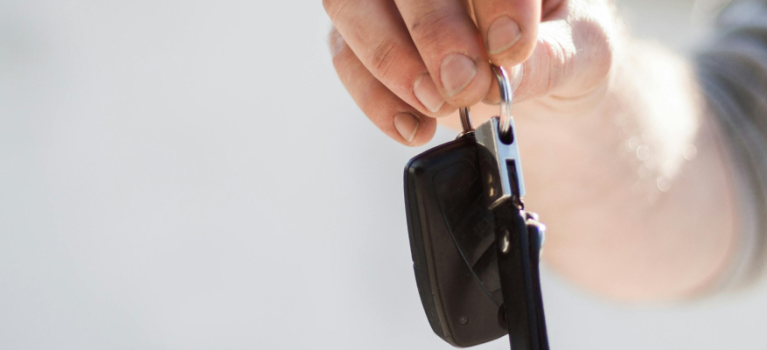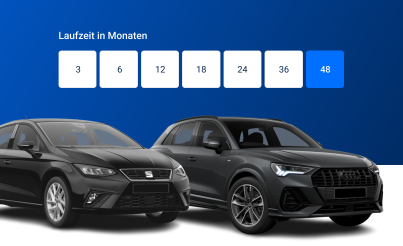Leasing a vehicle ties you to a car for a certain period of time, without you becoming the owner. But what happens at the end of the contract, especially if you want to keep the car? In this article, we'll tell you everything you need to know about your options and what you need to consider when buying a car at the end of your lease. And we'll tell you why a car subscription could be a good alternative.
Leasing explained: Using a car for a limited time
With a leasing, you use a vehicle for a fixed period of time and pay monthly instalments based on a number of factors:
Price of the vehicle
Selected kilometre allowance and interest rate
Down payment
Contract term
Agreed residual value of the vehicle
What many people forget: The leasing instalment only covers the cost of financing and using the car. Other running costs such as maintenance, insurance and tyres are usually added on. It is therefore important to carry out a total cost calculation before signing the contract. This will help you avoid unexpected expenses and gives you a realistic idea of the total cost of your leased car.
The decision to buy your leased car
When the leasing contract comes to an end, it is time to consider whether it makes sense to buy the car. It is important to understand that the leasing instalments paid are not deducted from the purchase price. Instead, the purchase price is determined by the residual value of the car. This is because the leasing payments you have made to date cover the cost of using the car and the interest, but do not represent a repayment.
Residual value: deciding whether to buy
The residual value is a contractually agreed estimate of what the car will be worth at the end of the lease. Many factors go into the calculation, such as expected wear and tear and the market value of the car. If the residual value is set too high, it may reduce the leasing instalments but increase the purchase price at the end of the contract - and vice versa. It is important to note that the residual value does not have to be the same as the market value. Depending on the market situation and the condition of the car, the residual value may be lower or higher than the actual market value.
Used car or leasing purchase?
Many people wonder whether they should return their leased car and buy a used car instead. But before you buy a used car, you should be aware that it may have hidden defects. If you decide to go with your familiar leased car, you know exactly what its history and condition is. Regardless of what you choose: With any type of purchase, consider the running costs involved, which are often higher for older vehicles.
Car subscription: a modern alternative to leasing
A car subscription is an increasingly popular alternative to traditional leasing. It offers similar benefits to leasing, but with added flexibility and lower costs:
The subscription includes all the essential costs of the car (financing, insurance, maintenance, taxes, etc.), making the monthly costs predictable.
At the end of the minimum term, you can simply continue to drive the car and, if you wish, cancel on a monthly basis or choose a new model. In some cases, it is also possible to buy the vehicle.
Read more about the benefits of a car subscription in this blog article.
Conclusion: the end of your leasing contract - a new beginning?
The end of a leasing contract gives you the opportunity to reassess your mobility needs. Whether you choose to buy the leased car, opt for a used car or for a flexible car subscription. Each option has its merits and should be chosen based on your personal preferences and financial considerations. Always consider the total cost of ownership and choose the option that best suits your lifestyle and budget.
SUPER SALE
Benefit from the super price of the Seat Ibiza Style from just CHF 216.- per month and get an additional 2'000 kilometres for free. Request a non-binding offer now!










